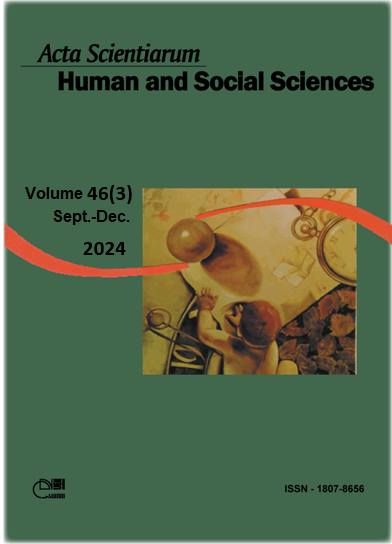The materials of mythology: the limits of Schelling’s Philosophy of Mythology
Résumé
Schelling postulates the origin of mythology as relative monotheism, preceding the polytheistic system of gods presumably present in all mythologies. A monotheism relative to the polytheism that succeeds it is understood as an inaugural moment in the formation of the consciousness of divinity, and the passage to polytheism is seen as a necessary development to overcome a relative monotheism towards absolute monotheism in the history of peoples. We would like to argue, however, that the original intuition about the communality of all mythologies is dependent on a specific interpretation and selection of the material sources of the mythologies as Schelling understood them, which, the author claims, should be taken as an already finalised work. This material delimitation is linked to Schelling's position not only on what authentically constitutes a ‘system of the gods’, but also on which humans constitute a people, to which a mythology belongs. However, while broadening the concept of mythology seems to be a peaceful solution to the problem of the limitations of its sources, the same cannot be said of the original intuition at the basis of the project. If this intuition is the affirmation of the consciousness of divinity as the unformed memory of a previous harmonious state, before differentiation into a polytheistic system, we ask whether this relative monotheism can be understood as a universal principle, or whether different mythological traditions would be irreducible to each other. We point to the shamanistic accounts of Amazonian cosmologies as a counterpoint to examine the role of the consciousness of divinity in the unfolding of mythology and the historical consciousness of peoples. We propose that the anthropological concept of perspectivism, by which many of these cosmologies are described, will allow us to ask the question about the possibility of a different understanding of the formation of consciousness.
Téléchargements
Références
References
Beach, E. A. (1994). The potencies of God(s): Schelling’s philosophy of mythology. Albany, NY: State University of New York Press.
Depew, J. F. (2015). Schelling’s philosophical ethnology: history, mythology and the question of South America. 5. Retrieved from https://www.iih-hermeneutics.org/_files/ugd/f67e0f_7f475b7f19224e3ba4ce8d59e7c034a2.pdf
Gabriel, M. (2006). Der mensch im mythos: untersuchungen über ontotheologie, anthropologie und selbstbewusstseinsgeschichte in schellings philosophie der mythologie. Berlim, DE: Walter de Gruyter.
Jankélévitch, V. (2005). L’Odyssée de la conscience dans la dernière philosophie de Schelling Paris, FR: L'Harmattan.
Kopenawa, D., & Albert, B. (2013). The falling sky: Words of a Yanomami shaman. Cambridge, MA: The Belknap Press of Harvard University Press.
Schelling, F. W. J. (1856). Sämmtliche Werke (I Abtheilung Vols. 1-10, II Abtheilung Vols. 1-4). Stuttgart: Cotta.
Schelling, F. W. J. von. (1989). Obras escolhidas (3a ed., R. R. Torres Filho, Trad.,). Sorocaba, SP: Nova Cultural.
Viveiros de Castro, E. (2004). Perspectival anthropology and the method of controlled equivocation. Tipiti, 2, 3-22. Retrieved from https://digitalcommons.trinity.edu/tipiti/vol2/iss1/1
DECLARAÇÃO DE ORIGINALIDADE E DIREITOS AUTORAIS
Declaro que o presente artigo é original, não tendo sido submetido à publicação em qualquer outro periódico nacional ou internacional, quer seja em parte ou em sua totalidade.
Os direitos autorais pertencem exclusivamente aos autores. Os direitos de licenciamento utilizados pelo periódico é a licença Creative Commons Attribution 4.0 (CC BY 4.0): são permitidos o acompartilhamento (cópia e distribuição do material em qualqer meio ou formato) e adaptação (remix, transformação e criação de material a partir do conteúdo assim licenciado para quaisquer fins, inclusive comerciais.
Recomenda-se a leitura desse link para maiores informações sobre o tema: fornecimento de créditos e referências de forma correta, entre outros detalhes cruciais para uso adequado do material licenciado.


























